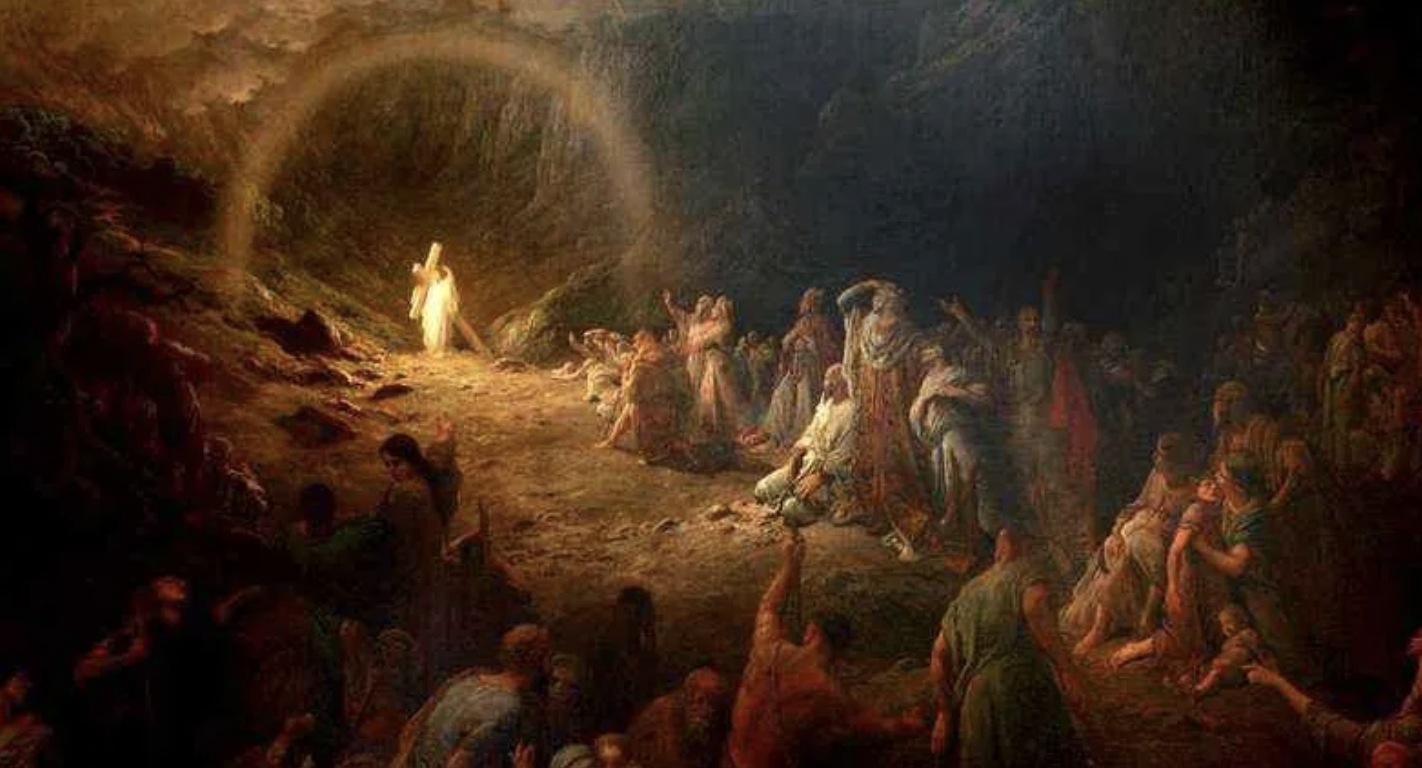Wæstm: Installment Number Five!
Echoes of familiar tales...
Eala friends! First of all, I want to apologize for my absence recently, which has been mainly due to exam period at my school. Today I’m finally back with more of my Wæstm project, a segment very heavily based on the Bosch triptych. It adheres very closely to some of the images on the rightmost panel, specifically the instruments and inexplicably floating ears (this is why I love medieval art!). The language was modeled after the traditional image of Christ’s descent into hell, a reoccurring motif in Christian art and writing from the Medieval period and onwards, such as the painting shown above. If you are interested, the biblical evidence most people source this material from is found in the New Testament, 1 Peter 4:6, and although the canonical authenticity of this particular moment are widely questioned, you can find many depictions of the scene from a variety of periods and origins.
I hope you enjoy this installment, and I’ll try to be more consistent about posting from now on. Also, please look up this word in the title of the chapter. It’s one of my favorites!
Chapter the Fifth: A prolonged flight, an agathokakological journey, and a ethical, internal tug-of-war
He sees many beautiful places
He gesihð fela forfæger ern
Pink castles and blue orbs
Þurh-hwitu readu castelu ond hæwe hringas
The apple gasps
Se wæstm fnēsð
A beautiful tree in a garden
For-fæger trēow in gewyrtune
The apple sees his home
Se wæstm gesihð his ēðle
Soon light is gone
Sōna leoht bið gegān
The apple sees musical instruments
Se wæstm gesihð hearpan
People are fighting and flying
Leoda bēoð feohtende ond gefleogende
Fires burn and ears fly
Ældas inbeornanað ond earan gefleogað
In the middle: a pear with horns
Tōmmides: peru mid hornum
The apple feels his destiny
Se wæstm gefelð his metod
